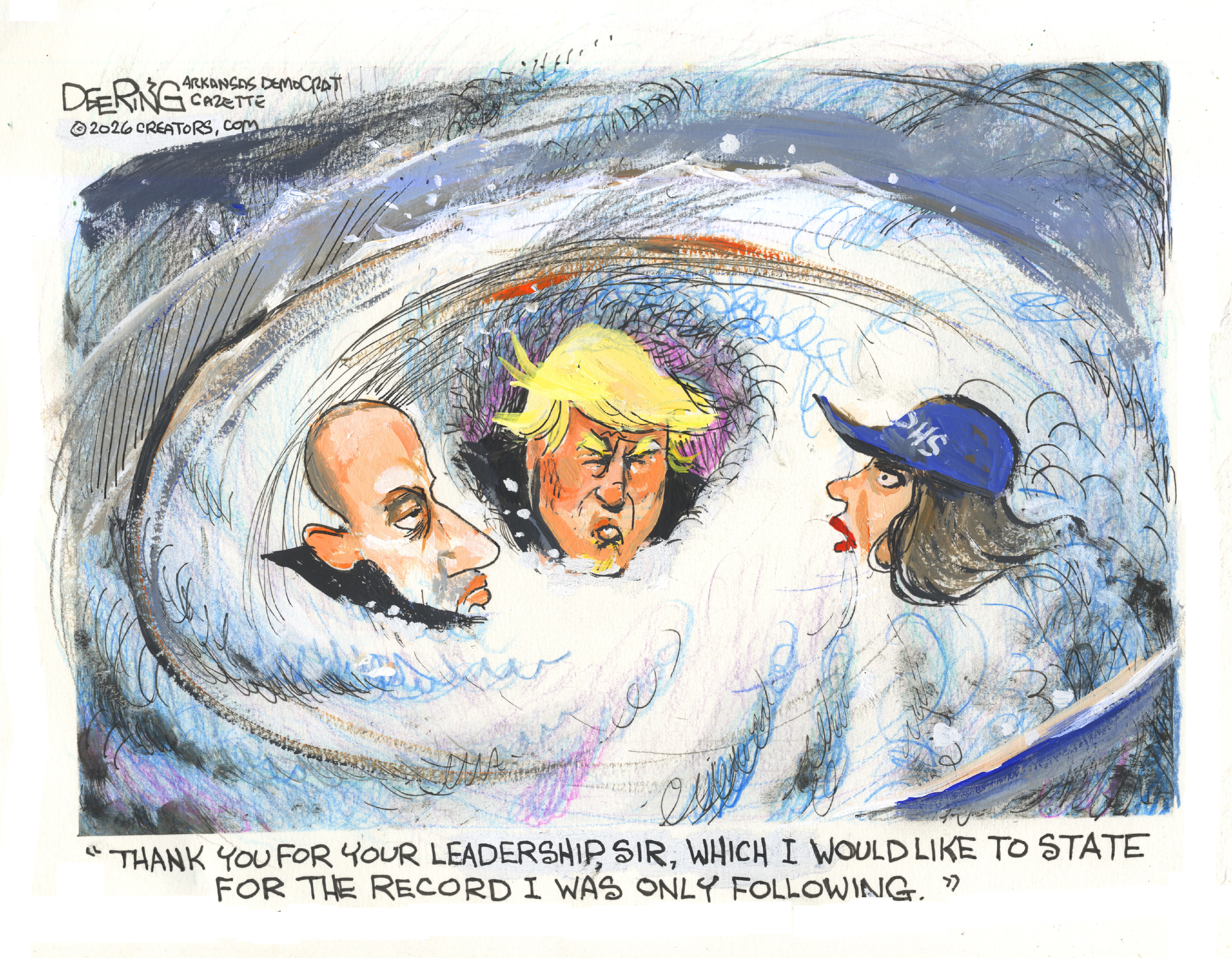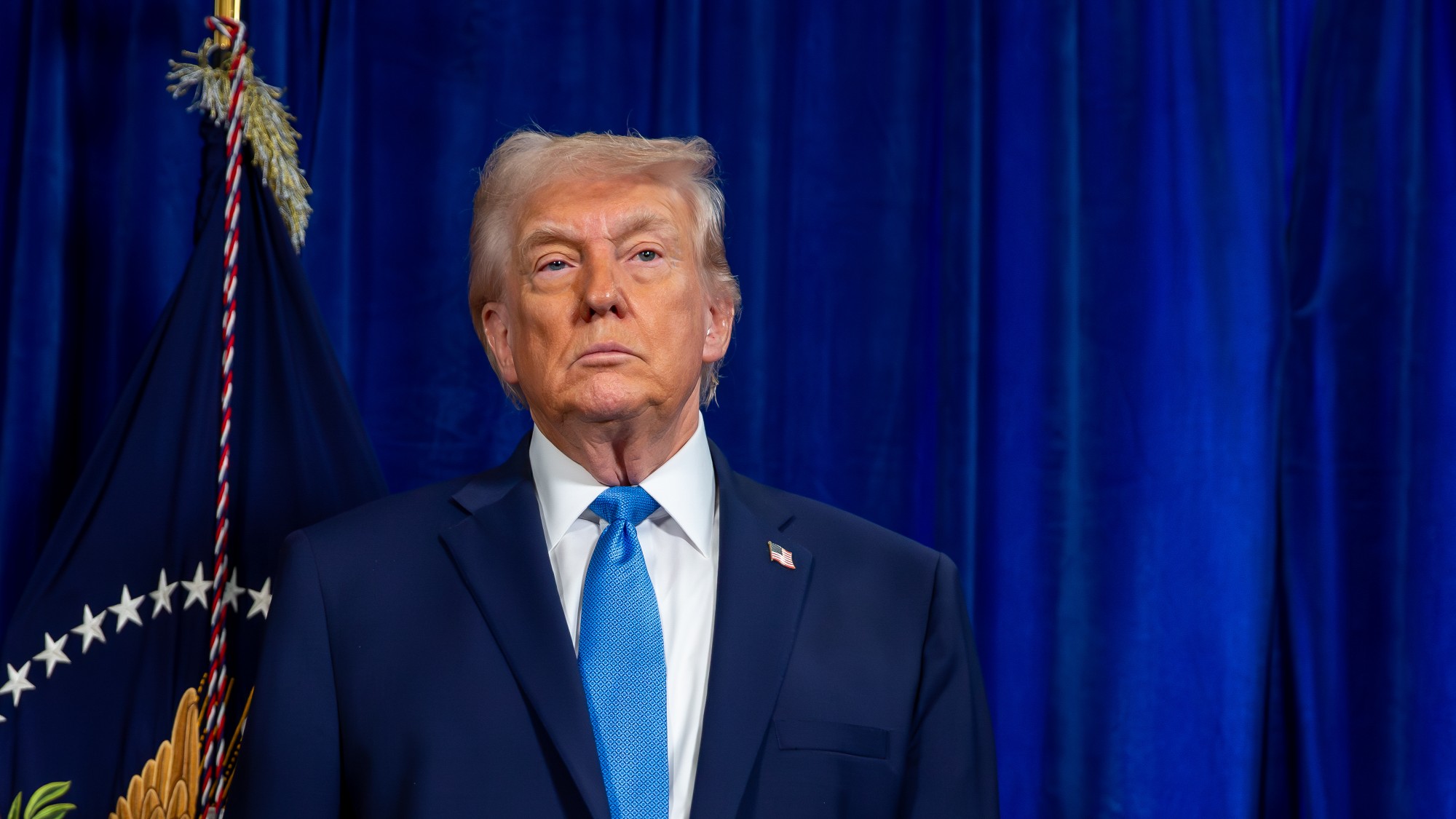Ten Things You Need to Know Today: 17 October 2022
The Week’s daily digest of the news agenda, published at 8am
- 1. Truss awaits market verdict
- 2. Met officers escape justice
- 3. Protester ‘dragged into’ embassy
- 4. NHS avoiding ‘scrutiny’
- 5. UK faces worse recession but lower rates
- 6. Trump criticises US Jews
- 7. Covid drug ‘needed for vulnerable’
- 8. Tip deductions ‘rob workers of £200m’
- 9. Cancer vaccine ‘by 2030’
- 10. Britain to bask in ‘Indian summer’
A free daily email with the biggest news stories of the day – and the best features from TheWeek.com
You are now subscribed
Your newsletter sign-up was successful
1. Truss awaits market verdict
Liz Truss’s future as PM is hanging in the balance as she waits to see how financial markets will react to her latest U-turn on tax cuts and her appointment of Jeremy Hunt as chancellor. The pound moved higher in early Asia trade this morning, gaining around 0.5% to trade above $1.12. While the BBC also reported that Hunt will bring forward “measures from the Medium-Term Fiscal Plan”, in a statement in the House of Commons today, in an attempt to further calm the markets. But Tory MPs are threatening to oust the PM and even her allies are warning she has just days to turn around her premiership. Tories are holding “secret talks on crowning a new leader”, said The Times.
Can Liz Truss survive after sacking Kwasi Kwarteng?
2. Met officers escape justice
Metropolitan police officers suspected of criminal offences including sexual assault and domestic abuse have been allowed to escape justice, a review has found. The report by Louise Casey found that in one example, an officer faced 11 claims including sexual assault, harassment and domestic abuse, but remains in the force. “You have to come to the conclusion there must be hundreds of people that shouldn’t be here, who should be thrown out,” said the new Metropolitan police commissioner, Mark Rowley.
The Week
Escape your echo chamber. Get the facts behind the news, plus analysis from multiple perspectives.

Sign up for The Week's Free Newsletters
From our morning news briefing to a weekly Good News Newsletter, get the best of The Week delivered directly to your inbox.
From our morning news briefing to a weekly Good News Newsletter, get the best of The Week delivered directly to your inbox.
Mark Rowley: the new Met chief tasked with leading force through ‘worst crises’ yet
3. Protester ‘dragged into’ embassy
A Hong Kong pro-democracy protester was forced into the Chinese consulate in Manchester and attacked. A BBC journalist filmed men coming out of the consulate and forcing a man inside the compound, before he escaped with the help of police and other activists. The protester told the BBC “they dragged me inside, they beat me up”. Greater Manchester Police told the Manchester Evening News that a police patrol remains in place in the area following the incident in order to reassure the local community.
Hong Kong: what’s happened in the 25 years since Britain’s handover to China?
4. NHS avoiding ‘scrutiny’
NHS hospitals have claimed that babies born alive were stillborn, reported The Telegraph. According to an investigation by the paper, six children who died before they left hospital were wrongly described as stillborn. Several of the children lived for minutes and one lived for five days, according to The Telegraph. In one example, an obstetrician told a coroner in Stockport that he had been encouraged by an NHS manager to say a baby he had delivered had been stillborn, in order to be “loyal” to the trust. Coroners are not able to carry out inquests into stillbirths.
A free daily email with the biggest news stories of the day – and the best features from TheWeek.com
5. UK faces worse recession but lower rates
The UK is likely to suffer a worse recession than previously expected next year, but interest rates and inflation will be lower than forecast, according to Goldman Sachs. In its revised analysis, the US investment bank downgraded its outlook for Britain, forecasting the UK economy would shrink by 1% next year, down from its previous estimate for a 0.4% contraction. Its analysts believe interest rates will now peak at 4.75%, slighter lower than the 5% previously factored in.
Are we heading for a second global recession?
6. Trump criticises US Jews
Donald Trump has attacked American Jews for what he described as their insufficient praise of his policies towards Israel. Writing on his social media platform Truth Social, he said “no President has done more for Israel than I have” and expressed his surprise that “our wonderful Evangelicals are far more appreciative of this than the people of the Jewish faith, especially those living in the US”. The American Defamation League said: “We don’t need the former president, who curries favour with extremists and antisemites, to lecture us about the US-Israel relationship.”
What is Donald Trump doing now?
7. Covid drug ‘needed for vulnerable’
Time is running out for hundreds of thousands of vulnerable people who are facing another winter shielding from Covid, said campaigners. Backed by charities such as Kidney Care UK and the MS Society as well as more than 120 medical experts, the campaigners are calling on ministers to buy a drug called Evusheld to provide some protection against the virus. However, the government said it is not clear how long that protection will last when up against the Omicron variant.
8. Tip deductions ‘rob workers of £200m’
Tip deductions are costing UK workers £200m a year, according to figures from the Labour Party. Pledging to “stamp out” deductions, Angela Rayner, Labour’s deputy leader, will reveal plans this week to ensure employers allocate all tips, gratuities and service charge payments to workers in full, without any deductions beyond those from statutory taxes. The Conservatives promised to address the tips issue in their 2019 manifesto and also in an employment bill that failed to make the last two Queen’s speeches.
9. Cancer vaccine ‘by 2030’
Vaccines for cancer could be widely available before 2030, said the husband and wife team behind one of the most successful Covid jabs. Professor Ugur Sahin and Professor Ozlem Tureci said knowledge gained during the coronavirus pandemic will accelerate cancer treatments based on mRNA technology. In an interview with the BBC, Tureci said: “We feel that a cure for cancer or to changing cancer patients’ lives is in our grasp.”
The UK’s ‘emergency’ cancer battle
10. Britain to bask in ‘Indian summer’
Britain will enjoy highs of up to 21C (70F) this week during an “Indian summer” ahead of Halloween, said The Telegraph. The Met Office said southerly winds will “draw up” warm air from Africa and bring a mild spell across the UK, particularly in the South East. The weather forecaster said the period from January to September was the hottest first nine months of the year since its records began in 1884, and its data for central England show October so far is 1.5C above average for the month.
How the UK’s droughts compare with the rest of the world
-
 Political cartoons for February 8
Political cartoons for February 8Cartoons Sunday’s political cartoons include going down the drain, American history, and more
-
 Touring the vineyards of southern Bolivia
Touring the vineyards of southern BoliviaThe Week Recommends Strongly reminiscent of Andalusia, these vineyards cut deep into the country’s southwest
-
 American empire: a history of US imperial expansion
American empire: a history of US imperial expansionDonald Trump’s 21st century take on the Monroe Doctrine harks back to an earlier era of US interference in Latin America
-
 10 things you need to know today: January 24, 2024
10 things you need to know today: January 24, 2024Daily Briefing Trump closes in on nomination with New Hampshire win over Haley, 'Oppenheimer' leads the 2024 Oscar nominations, and more
-
 10 things you need to know today: January 23, 2024
10 things you need to know today: January 23, 2024Daily Briefing Haley makes last stand in New Hampshire as Trump extends polling lead, justices side with US over Texas in border fight, and more
-
 10 things you need to know today: January 22, 2024
10 things you need to know today: January 22, 2024Daily Briefing DeSantis ends his presidential campaign and endorses Trump, the US and Arab allies push plan to end Gaza war, and more
-
 10 things you need to know today: January 21, 2024
10 things you need to know today: January 21, 2024Daily Briefing Palestinian death toll reportedly passes 25,000, top Biden adviser to travel to Egypt and Qatar for hostage talks, and more
-
 10 things you need to know today: January 20, 2024
10 things you need to know today: January 20, 2024Daily Briefing Grand jury reportedly convened to investigate Uvalde shooting response, families protest outside Netanyahu's house as pressure mounts for hostage deal, and more
-
 10 things you need to know today: January 19, 2024
10 things you need to know today: January 19, 2024Daily Briefing Congress averts a government shutdown, DOJ report cites failures in police response to Texas school shooting, and more
-
 10 things you need to know today: January 18, 2024
10 things you need to know today: January 18, 2024Daily Briefing Judge threatens to remove Trump from his defamation trial, medicine for hostages and Palestinians reach Gaza, and more
-
 10 things you need to know today: January 17, 2024
10 things you need to know today: January 17, 2024Daily Briefing The US strikes Houthi targets in Yemen a third time, Trump's second sex defamation trial begins, and more